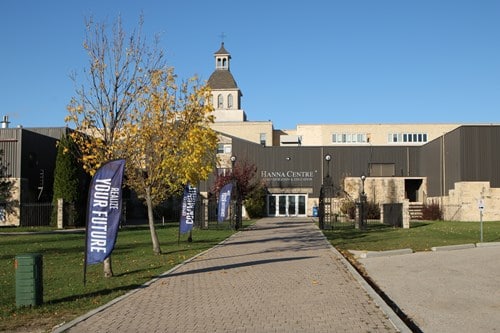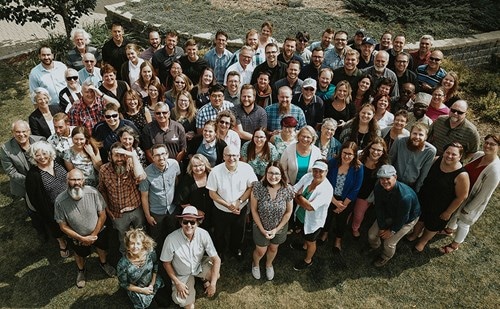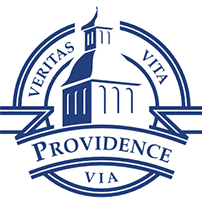Tonight, as we begin the annual meeting of the corporation of Providence University College & Theological Seminary, we acknowledge that Providence rests on lands occupied over many centuries by the Cree and Anishinabe peoples joined later by the Metis. Their descendants are found in the Red River Metis and the Roseau River Anishinaabe First Nation community. It is within their territory that our activity as a Christian educational institution takes place under Treaty One signed in 1871. We honour them as current hosts and original trustees of this part of God’s creation. May we live well in the land together!
In this State of the Institution address, I want to answer four questions. Who is Providence? What is the state of Providence? What are our challenges? And why do we do what we do?
1. Who is Providence?
Providence is a Christian academic community in the evangelical tradition that teaches people to grow in knowledge and character for leadership and service in churches and communities around the world. This is our mission. This is who we are. Underlying our mission are our basic values. We name five. These values differentiate us from other universities. They describe my passion. They are the reason I go to work every day.
Christ First: Jesus is pre-eminent in every way and over all things from the beginning to the end of time. He is before all things and in him all things hold together (even our academic disciplines). He speaks to us in and through the Bible. The Bible is his word to us, mediated by the prophets and apostles. This is what it means to be in the evangelical tradition.
Academic Excellence: We do our best at everything for the glory of God. This includes our academic work of studying and teaching.
 Exploration: Because God is the creator of the world and societies and people, we explore these with great curiosity. We never stop exploring them. We ask and seek answers to profound as well as mundane questions. It’s amazing what you discover when you explore things with a humble attitude.
Exploration: Because God is the creator of the world and societies and people, we explore these with great curiosity. We never stop exploring them. We ask and seek answers to profound as well as mundane questions. It’s amazing what you discover when you explore things with a humble attitude.
Diversity of thought: We listen. We desire to understand before being understood. Truth is learned by listening. Of all our values, this is the most difficult, because we are sinners and we want to be right all the time.
Community: Community brings us joy. When alumni recall their time at Providence, they talk about the community. I was at a gathering of alumni in Calgary last year and a prospective student (a stranger to Prov) said to me that she had never been a part of a community like ours.
These are not separate entities in my mind. The key for me is integration, so that theology is integrated into everything we do in life.
Our vision is to be recognized as among of the foremost Canadian Christian Universities where students grow in knowledge, character and faith for Christ and his kingdom. Our vision is all about students!
2. What is the State of Providence?
So how are we doing? Are we achieving our vision? Are we fulfilling our mission? Numbers are a secondary measure of our progress. So let’s start there.
Enrollment (year over year unduplicated headcount): This is the number of people who took at least one course through Providence: 2013 (617) 2014 (573) 2015 (615) 2016 (550) 2017 (630) 2018 (606).
I am happy to report that I have every indication that our first-year class, the class of 2022, is outstanding. I am also happy to report that retention in the University College is on target. Even so, this year our fall enrollment has dropped significantly in both the University College and the Seminary. In the University College this is due in large part to a drop in international students from the last two years. In the Seminary, although we have a good incoming class, we had a drop in returning students taking courses this semester. Because we are a tuition-driven school, this could have profound effects on our budget for this year unless we recover significantly in the winter semester. We have paused in our plans to build a new Living & Learning Centre in order to take a deep breath before we plunge forward.
Finances: In a few minutes our VP for Administration will present the audited financial statement. After four years with an audited surplus, last year the audit showed a deficit of about 1%.
Impact 2020: The Campaign for Providence: With two years remaining in the campaign we have achieved a total of $12.33 million. Here’s what we have done so far:
- Bsc with majors in biology and life sciences.
- BBA in the Buller School of Business.
- The Welcome Center – a one-stop shop for student services.
- Significant salary increases for all employees.
- A growing endowment.
- A new website.
- Better work in donor development.
- A more integrated approach to marketing, recruitment and retention of students.
Cabinet changes: Three people are leaving Cabinet this year. John Laugesen, VP for Administration and Cherry Wiebe, VP for Marketing and Communications, will leave in December. Stan Hamm, VP for Seminary Academics, will depart after the school year is over. These three people have added huge value to Providence during their tenure as leaders. As a result of their leaving, we will restructure the institution to be better equipped to add value to the student experience in the future.
Curricular changes: We are changing our focus from growing our numbers to adding value to a Providence education. We will continue to focus on students’ spiritual, intellectual, social and physical health. We will develop and implement a plan to help students gain employability. We will expand our mentorship program. We began to implement a well-defined “First Year Experience”. We added a BSc in Health Sciences. We have not figured out how to make Mile Two Discipleship School viable in itself. It does bring students into the University College, but each year has fewer students.
3. What are Our Challenges?
- The number of Canadians attending higher educational institutions has been static.
- The public opinion of higher education has changed.
- The public opinion of Christian organizations has changed.
- The funding of private education in Manitoba is minimal.
- Student mental health: This topic is constantly in the higher Education news. We are expected to have up-to-date protocols for harassment of all kinds (and we do). We spend more on student services than in the past. We are no different than other PSE institutions.
- We face social, political and economic uncertainties.
I read a book recently called Canoeing the Mountains about Lewis and Clark. They were tasked by Thomas Jefferson with finding the water way from the east coast to the west coast. When they reached the headwaters of the Missouri River they expected to walk over the continental divide and put their canoes into the waters of the Columbia River. They were sorely disappointed. There was no such waterway. Instead, there were lots of mountains to cross.

DCIM100MEDIADJI_0010.JPG
What do you do when there is no map for where you are going? That is the world we live in. No one in western Christian leadership has encountered a map-less world since the first centuries of the church. But here we are. How will make our way forward? Perhaps we should read our Bibles and the early church fathers to see how they did it. Maybe the early church has something to teach us about living in a map-less world.
An example of social uncertainties is the Trinity Western University court case and their subsequent decision not to require students to abide by their Community Covenant. This is a very complicated situation, and one that we have not faced before in western society. How do we love all people and maintain our convictions? As Richard Mouw asks, “How do we practice convicted civility?” Trinity Western wants to inspire rather than legislate lifestyle. I mention the western church because our brothers and sisters in other parts of the world face these sorts of uncertainties continually. Maybe we need to learn from them how to be Christians in an unchristian world.
4. Why do we do what we do?
Churches need us: Our alumni are in leadership positions in churches in Canada and around the world. Churches need people who think Christianly about life, work, family and leadership.
Neighbourhoods need us: We foster generosity, volunteerism and values-based decision-making. I have friends who support missions to the poor and hungry people of the world. That’s great. But we also need to support the people who lead those organizations. Those are our graduates. We train leaders.
Students need us: We provide an environment of small classes where everyone knows your name. We show students how to integrate faith and the marketplace. We want students to ask, “How can I bring my faith to work?”
The nations need us: They need a verbal and visible testimony to the grace of God. Our alumni are part of the vast “salvation army” that is taking the gospel across the ocean and across the street.
In conclusion, I return to the first of our values: Christ. I began teaching New Testament at Providence in September of 1990 – 28 years ago. Over the past 28 years, I have become utterly and absolutely convinced that the Lord Jesus Christ is the beginning and the end, the Alpha and the Omega, of all that exists. Let me quote two passages that exemplify this truth:
First, from John: “In the beginning was the word, and the word was with God, and the word was God. He was in the beginning with God. Everything came into being by him, and apart from nothing has come into being.”
Then, from Paul: “He is before all things, and in him all things hold together.”
To him be glory forever. Amen.
The State of the Institution Address was presented at the annual Corporation Meeting, which preceded the 2018 Harvest Festival on September 28, 2018.


